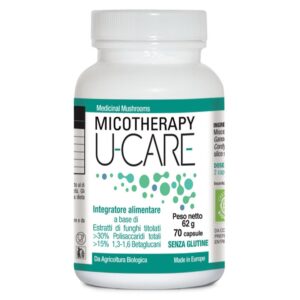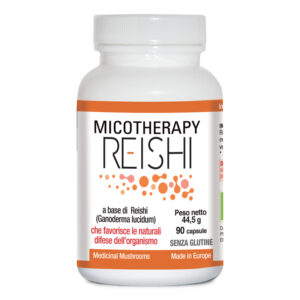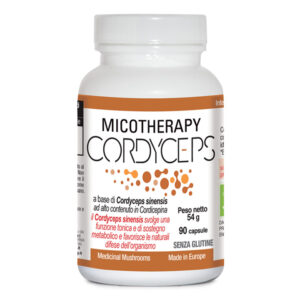Integrated Oncology: A New Study Confirms the Validity of This Approach
Among the latest statements from the National Cancer Institute (NCI) is one regarding integrated oncology—namely, the clinical methodology that combines standard therapies with the use of dietary supplements—as a safe and effective approach to support patients during and after cancer treatments. Recently, a new study published in the scientific journal Frontiers in Pharmacology was coordinated by Dr. Massimiliano Berretta, an oncologist and professor at the Department of Clinical and Experimental Medicine at the University of Messina. The study followed four patients suffering from malignant pleural mesothelioma, widespread malignant peritoneal mesothelioma, intrahepatic cholangiocarcinoma, and breast carcinoma, who, after the failure of conventional chemotherapeutic treatments or the occurrence of serious adverse events, were treated with an integrative and multidisciplinary approach to improve their quality of life.
Integrated Oncology: What Supplements Support Traditional Oncological Therapies
To support patients treated with conventional drugs prescribed by health protocols, vitamin C and D, probiotics, and medicinal mushrooms were suggested, drawing from clinical evidence reported in the literature and guidelines from the NCI and the National Center for Complementary and Integrative Health (NCCIH). The integrative medicine therapeutic path highlighted that Vitamin C had a dual effect in improving patients’ quality of life and mitigated the side effects of pharmacological therapies. It is emphasized that the most significant clinical benefits concern the intravenous administration of Vitamin C, while in patients with malignant pleural mesothelioma and intrahepatic cholangiocarcinoma, it has also proven effective in oral administration.
Vitamin C and D, Probiotics, and Medicinal Mushrooms Supporting Standard Oncological Therapies
As numerous observational studies have already shown positive data regarding the use of Vitamin D in integrated oncology, this data also confirms the validity of its use in integrated oncology. The same is true for the use of probiotics, particularly Lactobacillus rhamnosus LRH11, Lactobacillus acidophilus LA5, and Bifidobacterium bifidum BB12, which have helped mitigate the side effects of therapies and generally restore intestinal eubiosis and nutrient absorption, key factors in improving the outcomes of therapies and the quality of life of patients.
Mycotherapy Supporting Standard Oncological Therapies
Medicinal mushrooms also have several studies backing the positive role of mixtures in integrated oncology. In particular, in the case study at hand, the Micotherapy U-Care mixture was used, which contains Reishi (Ganoderma lucidum), Maitake (Grifola frondosa), Agaricus blazei Murrill, Cordyceps sinensis, and Shiitake (Lentinula edodes). According to the NCI and NCCIH, medicinal mushrooms deserve further studies because their use can improve the quality of life and immunomodulation in cancer patients. It is worth noting that mycotherapy was approved as an adjunct to standard cancer treatment in Japan and China more than 30 years ago, with a long history of safe clinical use, especially for extracts, whether used individually or mixed together.
Prodotti correlati

Micotherapy U-CARE
Micotherapy U-CARE is an AVD REFORM proprietary blend containing concentrated hydroalcoholic extracts of 5 fungi: Reishi (Ganoderma lucidum), Maitake (Grifola frondosa), Agaricus blazei, Cordyceps sinensis and Shiitake (Lentinula edodes).

Micotherapy Reishi
Also known as the 'Mushroom of a Thousand Years' and the 'Mushroom of Immortality', Reishi is traditionally regarded as a useful remedy for restoring balance to the body, consequently helping to improve resistance to disease.

Micotherapy Cordyceps
Cordyceps sinensis is a medicinal fungus with a wide range of uses; originating in the Himalayas, it grows at altitudes above 3,000 metres and has been used in China for approximately two thousand years. In traditional Chinese medicine, it is considered a powerful tonic for the kidneys, home to our vital energy.




